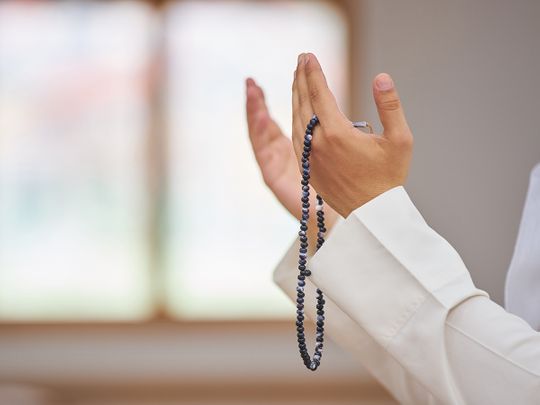
Dubai: Saudi Arabia’s Supreme Court announced that Thursday, March 23, will be the first day of Ramadan as the crescent of Ramadan was not sighted on Tuesday.
The crescent, which marks the beginning of Ramadan, could not be sighted. Therefore, Wednesday, March 22 is the last day of the month of Sha’aban, and the fasting month of Ramadan will begin on Thursday, March 23.
Qatar
The Crescent Sighting Committee at the Qatar Ministry of Awqaf and Islamic Affairs announced that Wednesday, March 22, is the final day of Sha'ban and that Thursday, March 23, will be the first day of the month of Ramadan, Qatar News Agency reported.
Kuwait
Kuwait also announced that Thursday, March 23, will be the first day of Ramadan.
Bahrain
The moonsighting committee in Bahrain has announced that Thursday, March 23, will be the first day of the month of Ramadan in the country, Bahrain News Agency reported.
The Islamic calendar is usually either 29 or 30 days. The beginning and end of the month depend on the crescent moon, which is why Ramadan is not set on any specific days annually.
Ramadan 2023
- Ramadan 2023: All the cannon firing locations you need to know about
- Ramadan 2023 in Sharjah: Working hours, timing changes, paid parking hours – all you need to know
- Ramadan 2023 in Sharjah: Working hours, timing changes, paid parking hours – all you need to know
- UAE: 3-day weekend announced for government workers in Umm Al Quwain during Ramadan
Working hours for employees
The UAE has already announced reduced working hours for public and private sector workers in the country during the holy month.
Earlier, the FAHR had issued a circular setting the official working hours for ministries and federal authorities at 9am to 2.30pm from Monday to Thursday, and 9am to 12pm on Friday. Meanwhile, for the private sector, the UAE’s Ministry of Human Resources and Emiratisation (MOHRE) recently announced that work shifts would be reduced by two hours during the holy month.
Ramadan is the month of piety, charity and blessings. During Ramadan, capable Muslims are required to abstain from eating and drinking from dawn to dusk. Such fasting is one of the five pillars of Islam.
The Ramadan traditions in the UAE start mid-Shaaban (the month preceding Ramadan). This day is known as Hagg Al Layla. Emirati children dress in their best clothes and go to houses in the neighbouring areas reciting songs and poems. The neighbours welcome them with sweets and nuts, which is collected by children in traditional cloth bags.
There are two main meals in Ramadan: Suhoor and Iftar. Suhoor is consumed early in the morning before sunrise, just before fasting hours start. Iftar is the meal to break the fast. Following the example of the Prophet Muhammad, fasting is broken with dates and laban (buttermilk) throughout the Islamic world.
The ministry said that the iftar (ending of the fast) cannons will be present on several sites, including in Abu Dhabi, Al Ain, and Al Dhafra, as well as Ras Al Khaimah and Umm Al Quwain.
The cannons of Ramadan have become a traditional event that people in the UAE look forward to witnessing during the holy month. It marks the end of the end of the day’s fast (iftar) at sunset.






